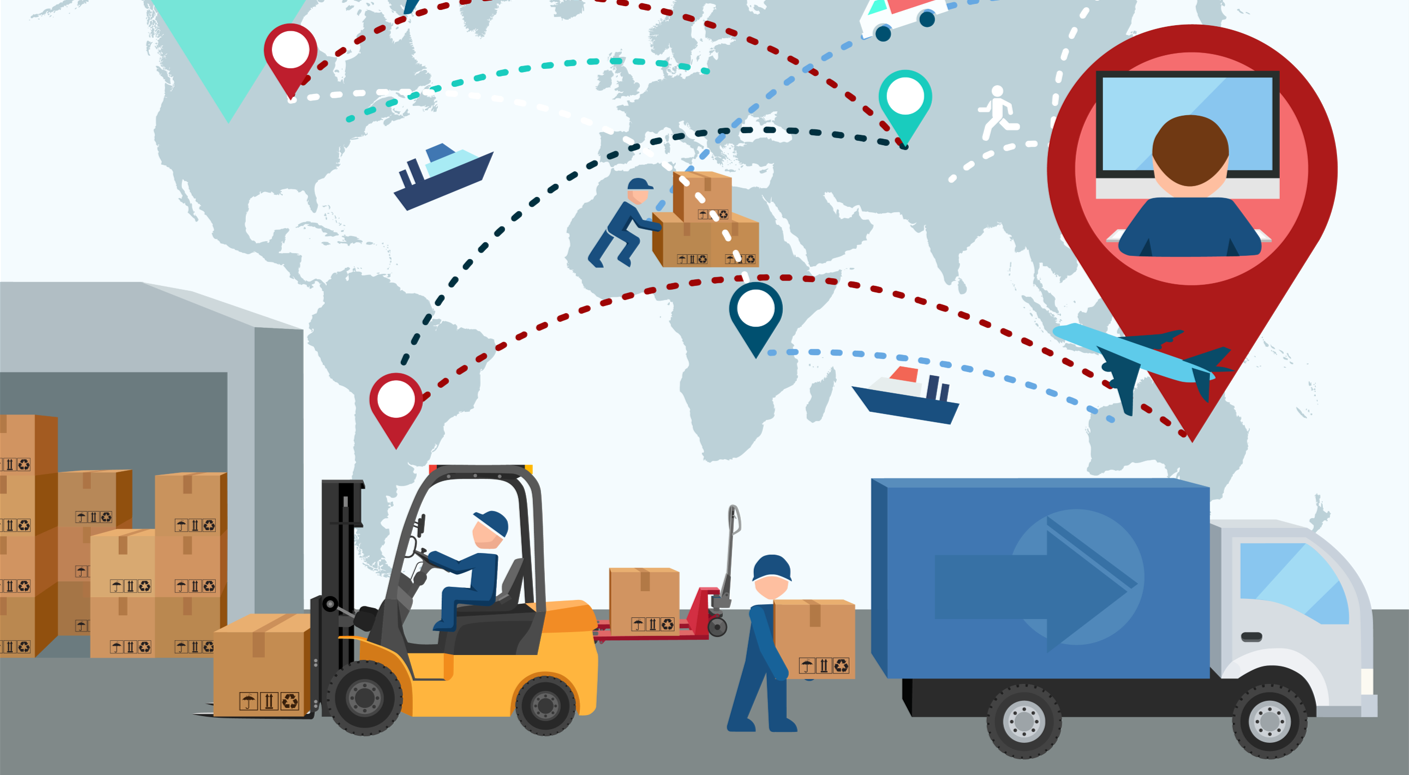With the global spread of the COVID-19 pandemic, there has been a massive surge in demand for medical devices and equipment. Even before the vaccine shipments started rolling out, there was a massive logistics demand being generated globally.
Trade of products such as Personal Protective Equipment (PPE) and face masks saw shocking spikes in the first half of 2020, and healthcare logistics companies played a pivotal role in ensuring worldwide deliveries of such products. The rising of medical products necessitated transport management of medical supplies globally. The biggest challenge started once the vaccine development and production started in the second half of 2020. The logistic system required in the medical sector is extremely complex and requires the latest technology as well as strict adherence to timelines. For instance, the process of manufacturing the vaccine starts with packing and storage of the DNA in a frozen state. Specialised containers are used to safely transfer the DNA to processing plants where scientists convert it into an RNA. The RNA is again frozen, packed and transported to the vaccine manufacturing plants where other ingredients are mixed with the RNA and filled in vials which are put in special cold storage vaults. The vaccines are then transported in customized thermal boxes which keep them at sub-zero temperatures as airliners transfer them to different parts of the world for distribution hubs.
The journey doesn’t end there as the hubs subsequently transfer the vaccines to hospitals, healthcare centres and other vaccination points under controlled temperatures until the time they are injected into peoples’ arms. This entire process might sound more daunting when you consider the fact that most countries in the world didn’t have the specialized containers or storage facilities ready to handle the vaccines and there are billions of vials to be transported. This called for an incredible logistic system which could real-time synchronize the different stakeholders and ensure seamless as well as on-time delivery of the vaccines from one point to another.
This is where a world-class transportations management software that enables management of the entire supply chains across countries, regions and terrain with absolute efficiency. For instance, vaccines manufactured in European countries such as Germany, UK or Belgium had to be transported to vaccination centres all over the world in containers that maintained minus 80 degree Celsius temperature. Since containers capable of maintaining such temperatures were not even available in most parts of the world, the healthcare logistics sector had to reinvent the entire logistic system and use advanced cloud based transportation management software to carry out the supplies. According to the data available, billions of vaccines have been administered globally and each one required a thorough monitoring and accountability throughout the supply chain. With several billion more doses yet to be administered, it is only the power of transportation management software that has been at the core of the entire operation.
When it comes to putting a perfect logistic system in place, there are very few transportation management software that can offer the agility, scalability and real-time visibility that the vaccine transportation requires. Further, it is not only about carrying the vaccines under challenging temperature-controlled conditions, but also to secure the data, tracking each box of the vaccines individually. Weather, traffic conditions and many other aspects have to be taken care of by the logistic system to ensure that vaccines are transported safely through optimized routes.
Thankfully, in the digitized world of logistics operations today, there are smart AI, analytics and IoT integrated transportation management software available which have the capability of delivering the medicines safely to their eventual global destination and save millions of lives.














